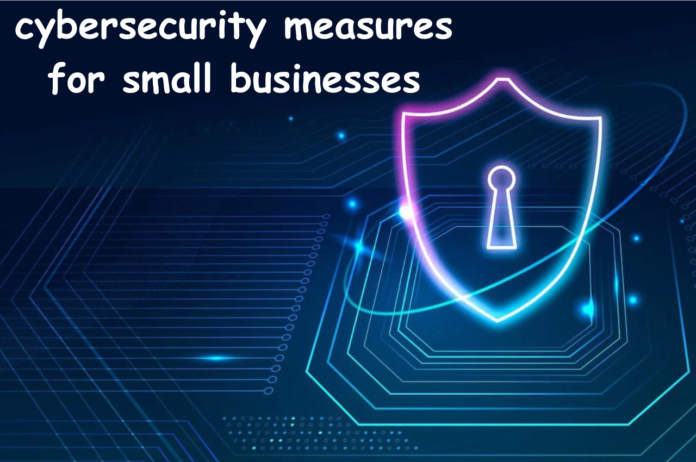While cyber security may not have been more important in the past, today due to the massive digitization of corporate operations, no organization is safe from cyber attacks. This becomes an even bigger challenge for small firms like yours, as they often have limited resources and a smaller workforce to manage security protocols. In this blog, we’ll discuss cybersecurity measures for small businesses. So let’s begin-
Thank you for reading this post, don't forget to subscribe!Best Cybersecurity Practices for Small Businesses
Here’s an overview of how important Cybersecurity Measures for Small Businesses.
Utilize Multi-Factor Authentication and Maintain Strong Passwords:
Passwords play a crucial role in ensuring the security of your business apps, contrary to popular belief. To effectively prevent cyber threats like brute-force attacks, where hackers try to gain unauthorized access by guessing username-password combinations, it is essential to use strong and unique passwords that incorporate a combination of letters, numbers, and symbols.
According to a study conducted by GetApp, a significant 60% of respondents admitted to frequently using the same password for multiple accounts, putting both their business and personal security at risk of account takeover.
To enhance the protection of your applications and corporate information, it is recommended to implement two-factor authentication (2FA). This additional security measure requires employees to authenticate themselves using 2FA in addition to their login credentials. The second factor can be an OTP (one-time password), a security question, or a biometric verification. By implementing 2FA, your applications become twice as secure, effectively mitigating the risk of identity fraud.
Implement Software Updates Immediately and Perform Regular Data Backups:
It is important to ensure that you receive a system notification whenever a software update is available for download and installation. At times, you may have to restart your computer to complete the update, which can be inconvenient, especially if you are in the middle of an important task. However, it is crucial to pause your current activities and promptly apply any available updates.
This is essential because many updates contain security patches for known vulnerabilities in the software. Failure to install these updates could leave your system or applications vulnerable to exploitation by hackers. By regularly backing up your data, you can safeguard critical information and ensure business continuity in the event of a security incident such as data loss or breach.
Secure your Networks with Security Programs and Tools:
Many organizations acknowledge that network security ranks as the second most critical security risk they encounter, right after remote work security. Safeguarding the routers, servers, network operating systems, and other software assets linked to the internet or intranet is a crucial aspect of network security.
Inadequate funds or expertise may lead small businesses to overlook network security measures, but by investing in the right tools, you can fortify your network against unauthorized access. Implementing a VPN, firewall, and basic network monitoring solution is a good starting point. Furthermore, encrypting data in transit can help prevent hackers from intercepting sensitive information as it travels between network nodes.
Beware of Phishing Emails:
Cybercriminals employ various social engineering tactics to deceive individuals into disclosing personal information such as login credentials, banking details, or credit card information. Phishing scams, which are a persistent issue, are commonly carried out through email, although they can also occur via phone, text, or social media platforms. It is crucial to refrain from responding to any email or phone call requesting personal or financial information that seems to be from a legitimate source. Given that a single vulnerability can lead to a complete system breach, it is essential to ensure that all employees are adequately trained to identify fraudulent emails and potential voice or phone scams.
Phishing emails have evolved to include sophisticated grammar, authentic logos, and personalized content to target recipients more effectively. As no technology is foolproof in detecting phishing emails, educating your staff on cybersecurity is the most effective approach. The most successful cybersecurity strategy for businesses involves training employees on recognizing potential phishing scams, ransomware attacks, and suspicious email content.
Create a Security Plan:
Every organization, regardless of its size, must prioritize having a well-defined cyber security strategy. The complexity of your company will determine the extent to which you can benefit from engaging cyber security professionals who can assist you in preparing for and effectively responding to online attacks.
The Federal Communications Commission has developed a website that enables small businesses to create a personalized cyber security plan at no cost. By selecting the relevant areas of concern for your company, such as credit cards, employees, email, and data security, the program will generate a tailored guide to assist you.
More Info: The Ultimate Cybersecurity Checklist for Businesses
In addition to establishing a robust cyber security strategy, it is also advisable to consider purchasing cyber liability insurance as part of your risk management approach. It is important to note that obtaining insurance coverage has become increasingly challenging. To begin the process, it is wise to demonstrate that you have implemented a successful cyber security plan. For more information on the availability, specifications, and cost of cyber liability coverage, it is recommended to consult a trusted advisor.
Conclusion: Cybersecurity is a Continuous Process
Today’s article on Cybersecurity Measures for Small Businesses shows that, Cybersecurity requires continuous attention, not just a one-time setup. As technology advances, threats also evolve. Small businesses need to remain alert by consistently assessing and enhancing their security measures. By prioritizing computer, network, cloud, human, and physical security, small businesses can minimize risks and safeguard their longevity. It’s crucial to remember that in cybersecurity, prevention is far better than dealing with the aftermath.
Technocommy is a connecting space, the leading growth and networking organization for business owners and leaders. Do I qualify?


